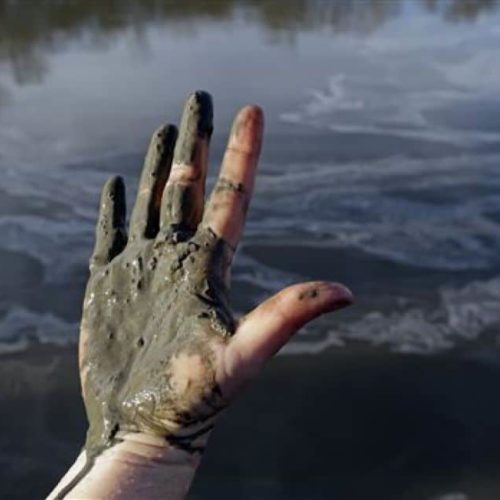Introduction
Editor’s note, Feb. 6: As the EPA ponders how to regulate coal ash, another spill is fouling an American river. In this case it’s the Dan, in North Carolina, where Duke Energy discharged up to 82,000 tons of the toxic sludge on Feb. 2 after a storm pipe broke.
For the first time, the Environmental Protection Agency is agreeing to regulate the disposal of coal ash as part of a settlement in a lawsuit filed against the agency by environmental groups.
In a consent decree Wednesday, the agency sets December 19 as its deadline for “taking final action regarding EPA’s proposed . . . regulations pertaining to coal combustion residuals.” The settlement follows an earlier judicial order, issued last fall, partly ruling in favor of Earthjustice and 10 other groups in a lawsuit challenging the slow pace of EPA’s regulatory action.
The agency is now weighing how to regulate coal ash, waste from the production of electricity. One of the nation’s largest refuse streams at 136 million tons a year, coal ash has fouled water supplies and threatened communities across the country.
In a series of stories, the Center for Public Integrity highlighted the consequences of coal ash.
Debate over federal regulation has dragged on for decades. After a disastrous December 2008 coal-ash spill in eastern Tennessee, the EPA pledged to act. Two years later, in June 2010, the agency announced its proposal to begin regulating the disposal of coal ash, presenting two alternatives in a 563-page draft. Under the first option, the EPA would classify the ash as “hazardous,” triggering a series of strict controls for its dumping. The second option would deem coal ash “non-hazardous” and subject it to less stringent national standards that amount to guidelines for states.
Three years after unveiling its plan, however, the EPA has delayed the rules, sparking the environmental groups’ legal challenge.
In October, a federal court judge sided with the groups in finding that, under federal waste law, the EPA has a duty to review and, if necessary, revise rules every three years. But the agency has not done so for rules governing coal-ash disposal since 2000.
The settlement does not direct EPA how to regulate coal ash or “address in any way the substance of the final action that EPA must take,” the agency said in a statement. “EPA has informed the public about the risks that will form the basis for its decision in a proposed rule … and we will make a final decision about a rule by the December deadline.”
After years of delay, environmental advocates are celebrating the court-sanctioned deadline. “It’s really good news we’ll have a final rule by the end of this year after waiting for so long for action from EPA,” said Lisa Widawsky-Hallowell, of the Environmental Integrity Project, which participated in the suit.
Without federal protections, she notes, hundreds of communities situated near coal-ash ponds, landfill and mine pits have suffered damage, and numbers are rising. “The patchwork of state regulations has not done enough to protect the environment or human health,” Hallowell adds. “Now, we need EPA to issue a final rule that protects the communities.”
Read more in Environment
Environment
Is this U.S. coal giant funding violent union intimidation in Colombia?
Alabama-based Drummond Co. sued for alleged ties to group behind deaths, threats




Join the conversation
Show Comments